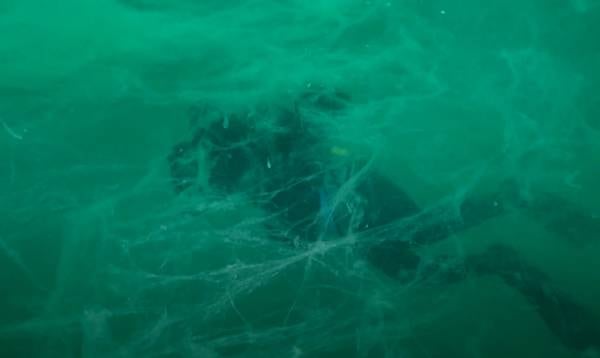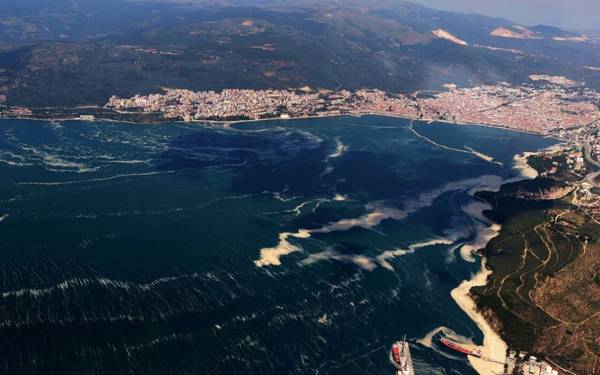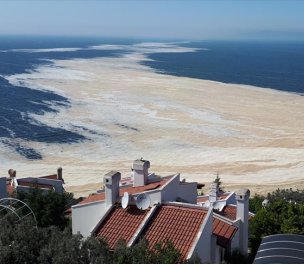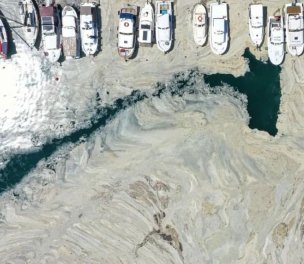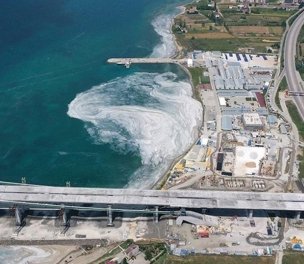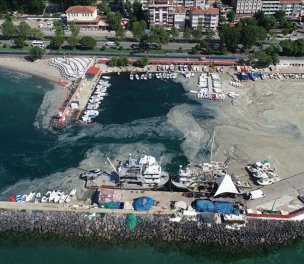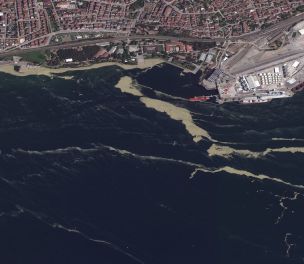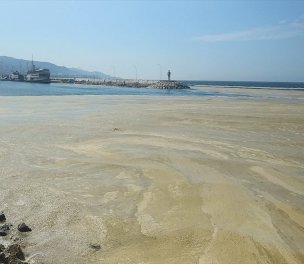Fish diversity in the Marmara Sea decreased by 25% after mucilage

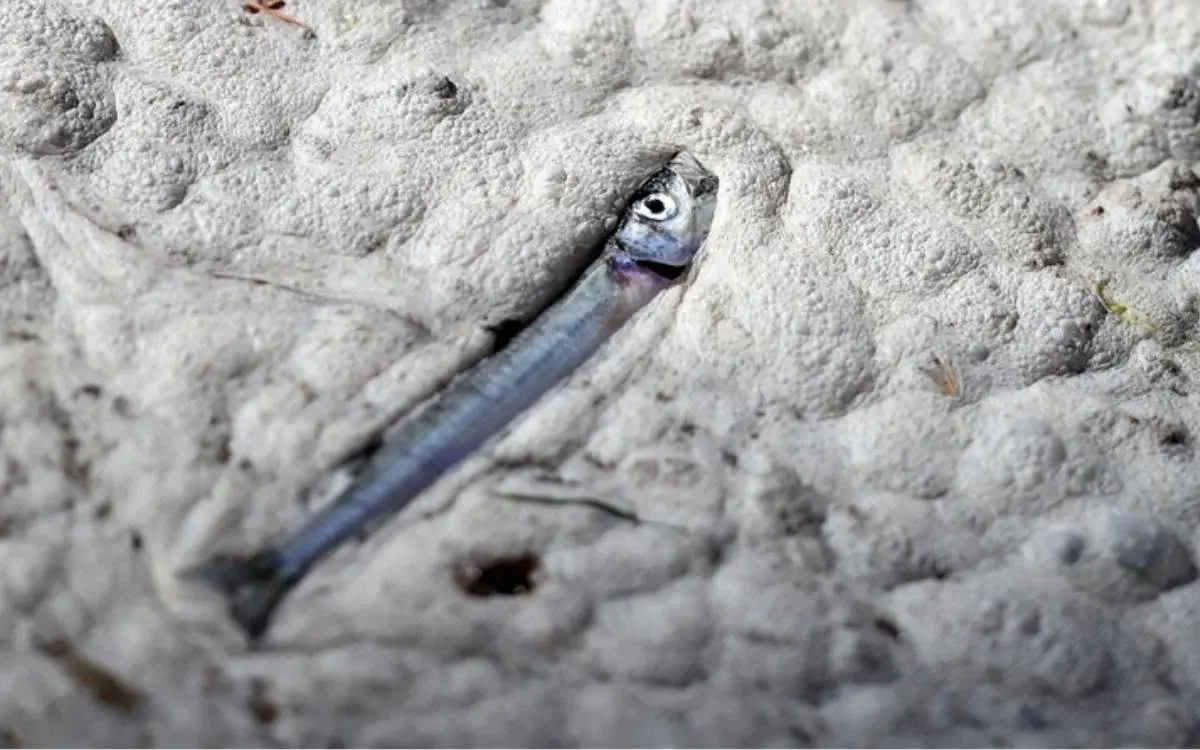
Mucilage, also popularly known as “sea snot”, is a slimy substance that causes odor as well as damaging the marine ecosystem due to the overgrowth of phytoplankton in the sea.
As a result of the studies and inspections, the area of mucilage decreased from 12,742 hectares in May-June 2021 to 3.5 hectares in July. After the cleaning of the mucilage, research on what caused it started.
The project titled “Determination of the Effect of Mucilage on Species Changes in Fish in the Marmara Sea (Mar-Bal)” was realized within the scope of the protocol signed between the General Directorate of Environmental Management of the Ministry of Environment, Urbanization and Climate Change and Bandırma Onyedi Eylül University Faculty of Maritime Studies.
Increase in the number of sharks and rays
Prof. Dr. Mustafa Sarı, Lecturer at the Department of Maritime Business Management, Faculty of Maritime Studies, Bandırma Onyedi Eylül University, reported that after the mucilage in 2021, they detected a decrease of approximately 25% in fish species diversity in the Marmara Sea, while the number, quantity and biomass of species such as sharks and rays increased by nearly 100%.
Sarı, stating that approximately 300 thousand tons of fish are caught annually in the seas of Turkey and 20 thousand tons of this amount comes from the Marmara Sea, said: “The Marmara Sea constitutes a share of only around 7-8%, but it has a much different importance than this share due to its original nature. Because the Marmara Sea is a biological corridor. It is a breeding area for some fish, a wintering area for some fish, a shelter area for some fish, and a transition point for others. Therefore, a situation arising in Marmara due to mucilage will definitely affect the Black Sea, the Mediterranean and the Aegean. This is a situation that requires us to follow up as it will directly affect fishing, which is an [important] economic activity."
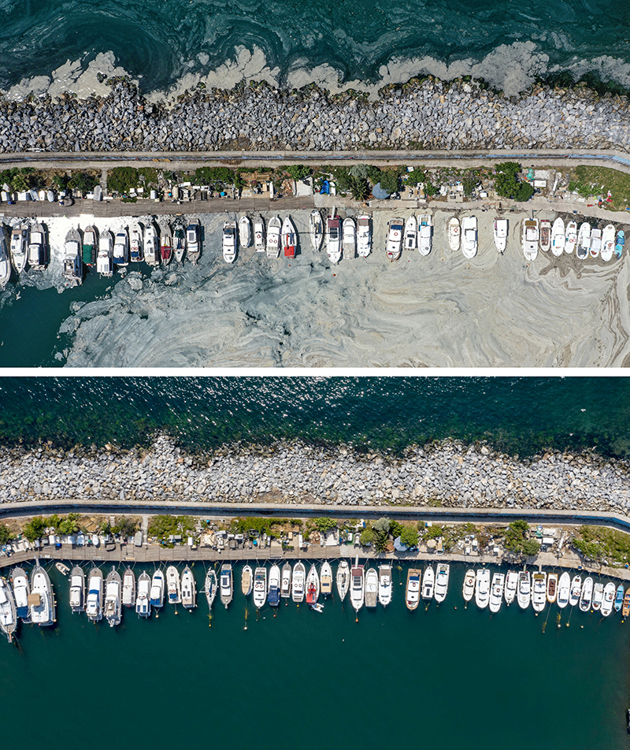
Recessing corals
Sarı, an expert who has studied the impact of mucilage on the Marmara Sea, reported that the substance has caused the mass death of sponge species from the shoreline to a depth of 30 meters, resulting in a 30% decline in coral populations. Additionally, Sarı noted that the mucilage has also had a detrimental effect on fish species diversity. In an interview with an Anadolu Agency correspondent, Sarı shared these findings:
"There is a 25% decrease in fish species diversity in the Marmara Sea due to mucilage. In terms of biomass, there is a decrease of around 20%. There is a decrease of around 20% in the amount of species such as anchovy, horse mackerel, bluefish – species we catch a lot of. On the other hand, there is an increase of nearly 100% in the number, amount and biomass of species such as sharks and rays."
“Pollution must be reduced”
Stating that the Marmara Sea Action Plan, which consists of 22 articles, should be implemented urgently in order to ensure the survival of the protected species such as sharks and rays, the number of which has increased, Sarı concluded his words:
“In August, our research team conducted a sampling between Büyükada and Maltepe coast, which yielded 1 ton of fish per trawl. Of this total, 50 kg were bony fish, while the remaining 950 kg consisted of sharks and rays. As our primary focus was on scientific research, we promptly returned the caught fish to the sea to prevent death. However, we cannot help but wonder how fishermen, who are primarily concerned with the market value of their catch, will handle the release of these species. While they may not intentionally harm sharks and rays, their priority is to sell their catch, which often results in the wastage of these protected species. If we fail to reduce the pollution load in the Marmara Sea in the coming years, both these protected species and other fish populations will continue to decline at an alarming rate.”
(TY/DT)




